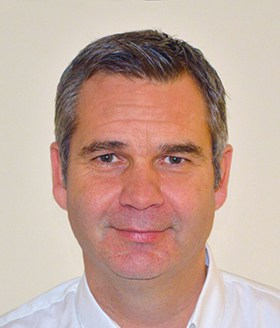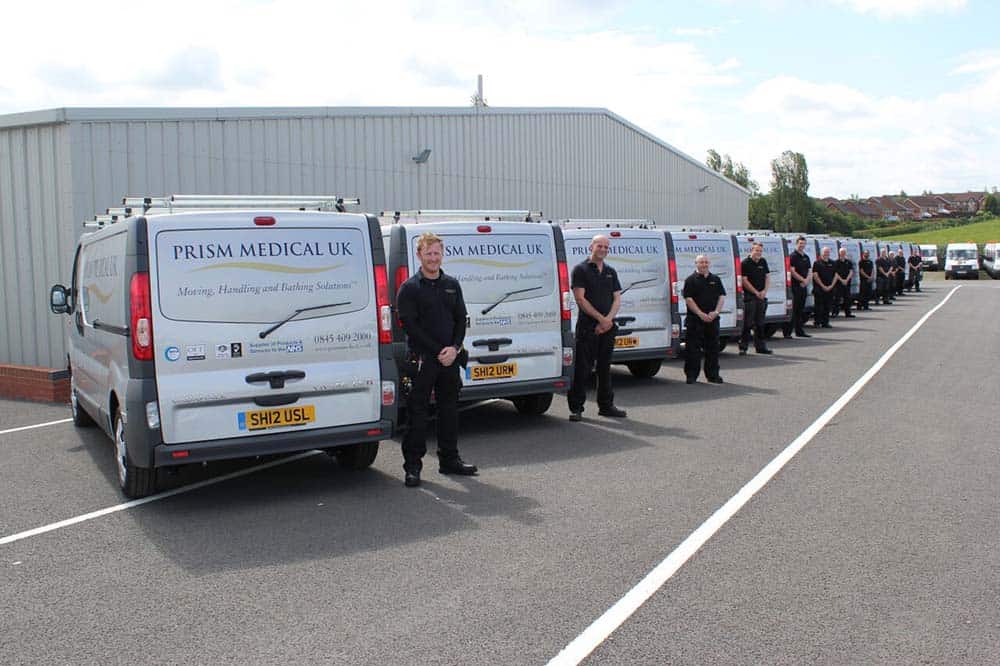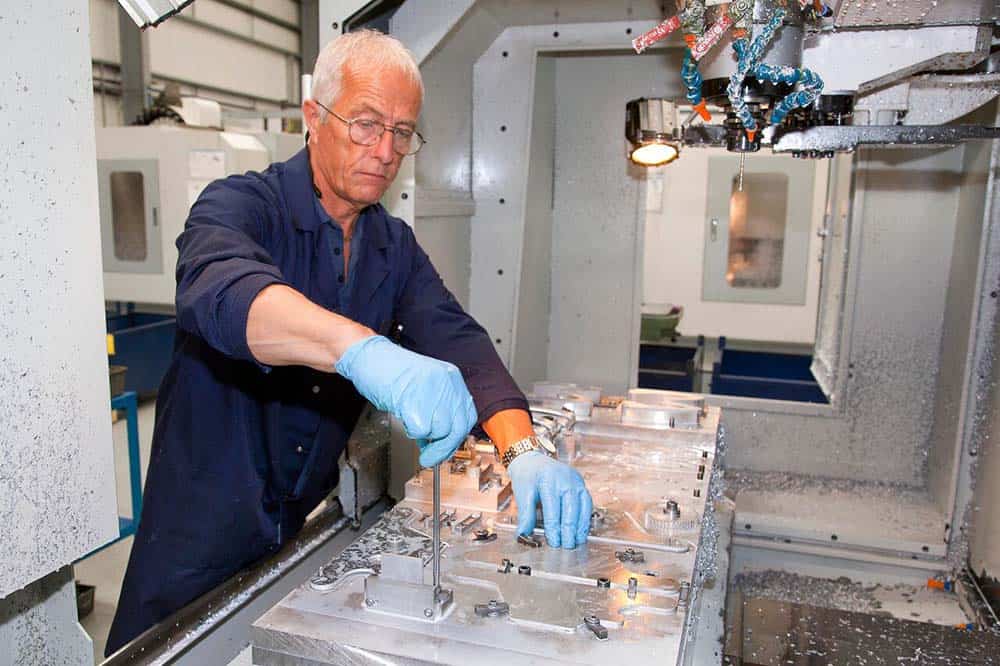More about… Prism Medical
A national reach with a local touch

In 2014, mid-market private equity provider LDC invested in Prism Medical UK, to enable the company’s acquisitive growth strategy. Four years on and four acquisitions later, the moving, handling and bathroom specialist now has three manufacturing facilities, four Regional Service Centres and employs over 450 staff across the UK. THIIS caught up with Prism Medical’s CEO, Stuart Meldrum, ahead of the launch of its South Regional Service Centre to discover more about its expansion and how the company had changed.
Two key goals
Working with Local Authorities, NHS Trusts and Care Home Groups across the UK, Prism Medical manufactures, assess, installs, trains, services and repairs an extensive range of moving and handling and bathing products, including hoists, slings, stairlifts, shower chairs and bed management systems.
In 2014 and 2015, the company made a number of high profile acquisitions, enhancing its business capabilities in a number of areas, from stairlifts with the acquisition of The Mobility Equipment Company to moving, handling & ergonomics training with its acquisition of HME Ltd and two manufacturing companies Mackworth and Smirthwaite.
Speaking with Stuart Meldrum, Chief Executive Officer of Prism Medical UK, he explained how expanding its capabilities was a key requirement for the company to achieve two core objectives.
“We have two goals that are fundamental to the way we work and our strategy,” he said.
“Firstly, we always aim to help the users of our products and services improve their quality of life. Secondly, as most of our products are procured through government funding, our objective is to try to give a good, competitive offer in terms of cost, which is particularly important in the current climate where Local Authorities are very cash-strapped.
“To achieve these joint objectives, our strategy has focused on offering good products with short lead times, driven by efficient processes to allow us to offer competitive prices, whilst simultaneously working hard to provide exceptional service.”
Products, lead times and efficiencies
A crucial element to Prism’s strategy is its product range, with the company investing heavily in acquiring brands to expand its portfolio and its offer to clients.
With three manufacturing facilities sites in the UK – following the acquisition of Smirthwaite and Mackworth Healthcare – Stuart stressed the value of UK-based manufacturing for achieving its goals.
“Having the manufacturing processes under our control in the UK, rather than controlled by subcontractors or manufactured in a factory thousands of miles away, really helps us with our lead times and quality, both which are essential for helping us achieve our goals,” said Stuart.
With its aim of providing competitive prices to Local Authorities with ever-tightening budgets, Prism has implemented Lean Manufacturing programmes to help reduce costs and manufacturing times.
The company has also invested in its workforce, taking on more apprentices across its multiple manufacturing sites in Newton Abbot, Rhyl and Bridgend.
“Compared to ten years ago, we are clearly a bigger company but we have worked hard on being more professional at what we do” Stuart Meldrum
Highlighting the need for UK manufacturers to invest in their capabilities, Stuart said: “You only have to look at the news to see the productivity gap, with UK companies being compared to companies in the USA and Germany for example. The point being that if you are going to be a manufacturer, you need to work hard at productivity and one of the ways you do that is investing in the correct capital equipment.”
Alongside developing its product offering and manufacturing capacities, Prism Medical has also been advancing its service capabilities as well.
Discussing the service element of its offer, Stuart commented: “Now we can assess what product is required, train people, install the product and carry out the service and repair functions.
“Our view is, if we can have a good product and short lead times, underpinned by good service, then that is exactly what end-users need for a good quality of life and it is what our funders need to be able to give them competitive pricing and costings.”
The importance of a local presence
Boasting one of the largest national network of service and repair engineers across the UK, Stuart explained the need to deliver a local service nationally to help achieve its desired level of service.
“We took the conscious decision a number of years ago to build the national network with our Regional Service Centres to ensure that we were able to offer a more local approach to how we deal with our customers,” he highlighted.
“As a national provider, we’ve found that Local Authorities liked to be served as locally as possible.”
This was a point echoed by Lynne Betts, General Manager of Prism’s South Regional Service Centre, emphasising the need to provide a local point of contact for customers.
“Our head office is up in Yorkshire, however, we realise the need to have a local presence, particularly with these products, as people need to be seen to as quickly as possible when assistance is needed,” commented Lynne.
“The local service centre provides us with the ability to really help support our customers and the end-users and although we are national, I think it is essential to have that local, personal feel to a company.”
In addition to benefiting its work with Local Authorities, Prism’s national infrastructure also aids the long-term care side of its business, with Stuart confirming that the network is vital for meeting the service needs of large, long-term care providers and care homes.
“Being able to provide a quick, reliable service is certainly one of our core strengths and our customers really appreciate it,” added Lynne.
Growth to meet changing expectations
Any period of change can be disruptive for companies and if not controlled correctly, can lead to problems of inefficiency, poor communication and a loss of the company’s culture.
Following its period of rapid expansion and significant changes, Stuart acknowledged that the company had worked hard to manage the growth effectively.
“I think as a company grows, you have more people come into the business and you have to make sure that not only the culture but also the processes and systems grow in unison,” he noted.
“I would say that, compared to ten years ago, we are clearly a bigger company but we have worked hard on being more professional at what we do and have managed to develop our processes and systems year-on-year to improve our service offering.”
For Stuart, the need to grow and expand the company’s service offering was essential as the expectations and demands of society has changed and increased.
“What we’ve found and it is a general thing in society is customers are becoming more and more demanding about the level of service they receive… and quite rightly so.” Stuart Meldrum
“What we’ve found and it is a general thing in society is customers are becoming more and more demanding about the level of service they receive… and quite rightly so.
“As a company, we have had to respond to that and make sure that when someone calls us up requiring an engineer, we are able to respond quickly. Practices that were common in the industry in the past have now had to significantly improve.”
By effectively adapting to these needs and expectations and working towards its two fundamental goals, Stuart is confident customers see the value in the company’s approach.
“I think our customers see us as having a good, all-around service and product range with significant resources and infrastructure,” he remarked.
“They see us as being competitive on cost, as well as a specialist in safe patient handling and accessibility.”
The future of Prism Medical
Whilst not disclosing if there were more acquisition ambitions in the pipeline, Stuart did confirm that Prism’s growth strategies have been successful for the company thus far.
“The thing we have had to work on continuously is improving our service levels and we’ll continue to invest in this in the future.
“Going forward, it is going to be more of the same,” he said
“We always say, put the customer first and the business will take care of itself. That is how we started and how we will continue going forward.”




